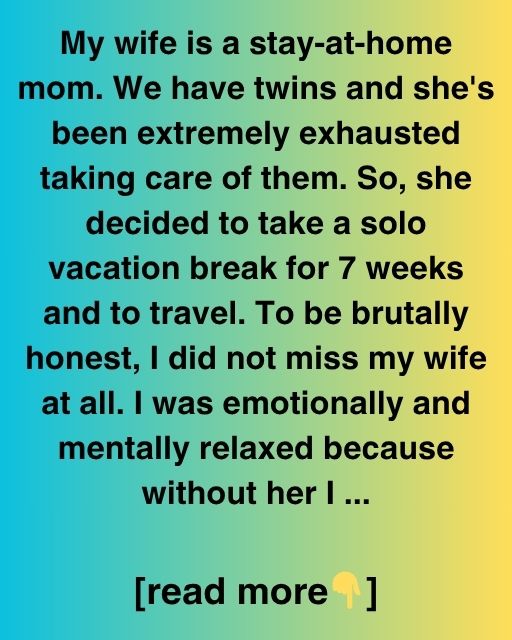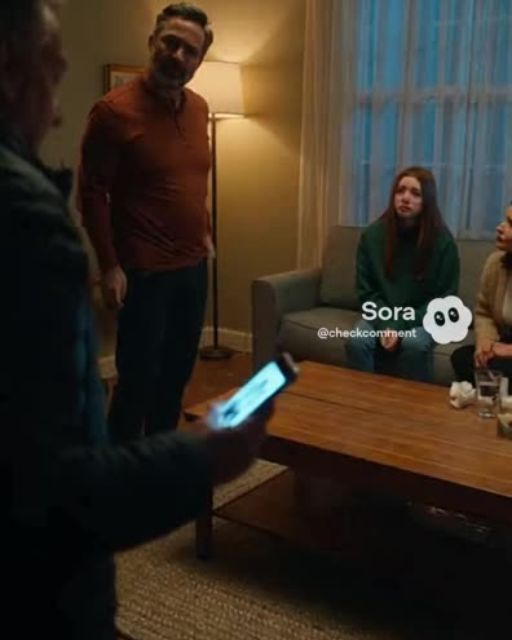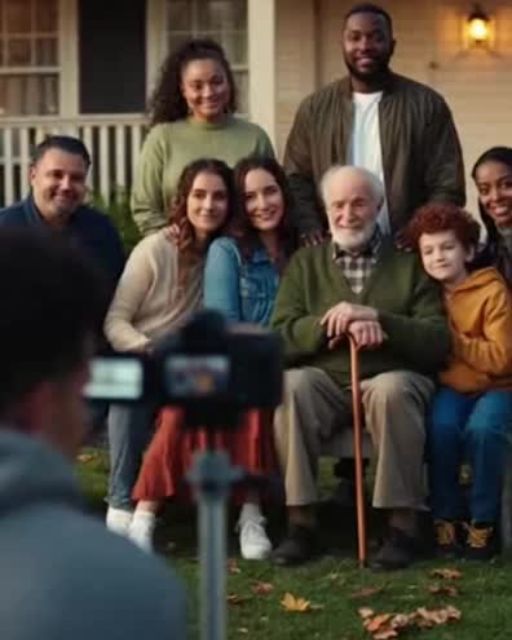My wife is a stay-at-home mom. We have twins and she’s been extremely exhausted taking care of them. So, she decided to take a solo vacation break for 7 weeks and to travel. To be brutally honest, I did not miss my wife at all.
I was emotionally and mentally relaxed because without her I didn’t feel the pressure of her tired sighs, the constant hum of stress in the house, or her reminders about laundry, dishes, baby wipes, pacifiers, bottles, and schedules.
The house felt quieter. For the first few days, I found it oddly peaceful. The twins, two little tornados of energy, were manageable with a good routine and lots of Cocomelon. I took leave from work for the first two weeks to fully focus on them, and I thought, This isn’t so bad. I’ve got this.
I made pancakes for breakfast, even if they were shaped like sad blobs. I played with blocks, made silly voices while reading bedtime stories, and even tried a homemade playdough recipe that somehow turned into a gooey mess stuck to the fridge handle.
Still, I felt proud. I was surviving. And I felt… free. Free from tension. Free from her critiques, her emotional rollercoasters, her silence when she was mad, her exhaustion that would pour all over the house like spilled coffee. I convinced myself that maybe, just maybe, things were better this way.
Week three rolled in and I returned to work, leaving the twins with my mom during the day. That’s when things got a little trickier. I’d come home to find toys scattered across every inch of the living room and the kids more clingy than ever.
Bath time became a daily battlefield. One night, my son bit his sister because she grabbed his rubber duck. I froze, unsure how to react. I ended up sitting on the bathroom floor with both of them crying, water all over my jeans, feeling like a failure.
That night, for the first time in a long while, I missed her voice. Not just her presence, but her actual voice. The way she could calm the kids down by humming a song I always teased her about.
The way she would whisper to our daughter when she had a nightmare. I found myself staring at my phone, fingers hovering over the call button. But I didn’t press it. Pride’s a funny thing.
By week four, the calm I had bragged about began to crack. The twins developed colds. Mild ones, but enough to disrupt every single night’s sleep. I’d wake up three times between 1 AM and 5 AM. I looked like a zombie at work.
One morning, I poured orange juice into my coffee cup and didn’t even notice until I took a sip. Still, I told myself I was just tired. Not that I needed her. Not that I missed her.
But then came the night I forgot my daughter’s inhaler at my mom’s. She started wheezing around 8:30 PM. Panic hit me like a truck. I grabbed both kids, rushed to my mom’s to pick it up, then back home to administer it.
It wasn’t an emergency, but the fear stayed with me. When I finally sat down on the edge of the bed, I realized something. My wife always remembered the inhaler. Always.
I scrolled through her travel photos on Instagram that night. She looked peaceful. Happy. Sun-kissed and free. For a moment, jealousy pinched my chest.
But right after that came a heavy, undeniable realization: she wasn’t the one I should’ve envied. She was the one I took for granted.
During week five, my son had a minor fall in the living room while chasing a ball. Nothing serious, just a bumped forehead, but he screamed like the world had ended.
I picked him up and rocked him, whispering, “Shh, it’s okay.” But he kept crying. “I want mama!” he sobbed over and over. I couldn’t console him.
I called her. I finally did.
She answered on the second ring, her voice surprised but warm. “Hey,” she said. Just that one word, and I cracked. I told her everything. How I had felt lighter at first. How I thought maybe we were better apart.
But then how the days became heavier and how the kids needed her in ways I couldn’t fill. How I needed her in ways I hadn’t admitted.
There was a long pause. Then she spoke, and I’ll never forget it.
“You didn’t marry a machine, you married a woman. I wasn’t just tired. I was breaking.”
She didn’t say it with bitterness. Just honesty. And it hurt, because I had seen her breaking and done nothing but move out of the way.
We talked for an hour that night. She told me about a woman she met in Spain who had also left her family for a bit to reclaim herself. How they sat on the beach and cried about how motherhood, though beautiful, can also feel like drowning with a smile on your face.
She told me she had started to write again. Stories. Poetry. Things she hadn’t done since college. She said she missed the kids like crazy, but not the version of life she had been living—where every breath was rushed, every moment drained.
“I needed to breathe, not just exist,” she said. And for once, I truly understood.
Week six came, and we began to FaceTime daily. The kids perked up at the sound of her voice. I saw her in a new light. Not as the person who forgot to clean up the kitchen or nagged about screen time. But as the woman who had quietly carried a mountain while smiling for the family photo.
By week seven, I started preparing for her return. Not just the house, but myself. I deep-cleaned the bedroom. I printed one of her poems from Instagram and framed it on her nightstand. I stocked the fridge with her favorite yogurt and almond milk and placed a “Welcome Home, Warrior” sign across the front door.
When she walked in, the twins ran to her. She dropped her bags, tears streaming down her cheeks. And then she looked at me—really looked—and smiled. A small, tired, forgiving smile. We hugged in the hallway like two people who had known loss and found their way back.
That evening, while the kids napped, we sat on the back porch. She asked me quietly, “Did you ever think about what I was feeling before I left?” I told her the truth. “I didn’t. Not enough.”
She nodded. “But now?”
I took her hand. “Now I see you.”
And I did. For the first time in years, I saw her not just as a mom, not just as a wife, but as a woman. A person with dreams, limits, and a breaking point. A person who had loved so hard, she forgot to love herself.
That weekend, we made a new plan. She would get one weekend a month just for herself—no questions asked. Whether it was a hike, a hotel stay, or just silence in her favorite coffee shop.
I would handle the house and the twins. Not because it was a favor. But because I owed it to her. Because partnership doesn’t mean waiting until someone collapses to help carry the load.
We also started therapy. Together. Not because we were broken, but because we wanted to keep growing. Turns out, you can love someone deeply and still fail to show up for them in the way they need. That was me. But it doesn’t have to stay that way.
Now, months later, I still think about those first few days when I felt “free.” And how I mistook the absence of noise for peace. But real peace isn’t found in silence—it’s found in understanding. In respect. In doing life with someone, not just around them.
My wife isn’t the same woman who left for that trip. She’s more confident. More centered. And maybe, just maybe, I’m not the same man either. I learned that emotional distance doesn’t make you stronger—it just makes you blind to the person drowning right beside you.
So here’s what I want to say to anyone reading this: if your partner seems off, if their light is dimming, don’t wait until they burn out. Ask how they’re doing. Really ask. And listen. Give space when it’s needed. Offer help without being asked. Not out of obligation, but out of love.
Sometimes, we don’t realize the true weight someone carries until we try lifting it ourselves.
If this story touched something in you, share it. Maybe it’ll help someone else see what I didn’t at first. And if you liked it, hit the like button. But more than that—go tell someone you love that you see them. Really, truly see them.




